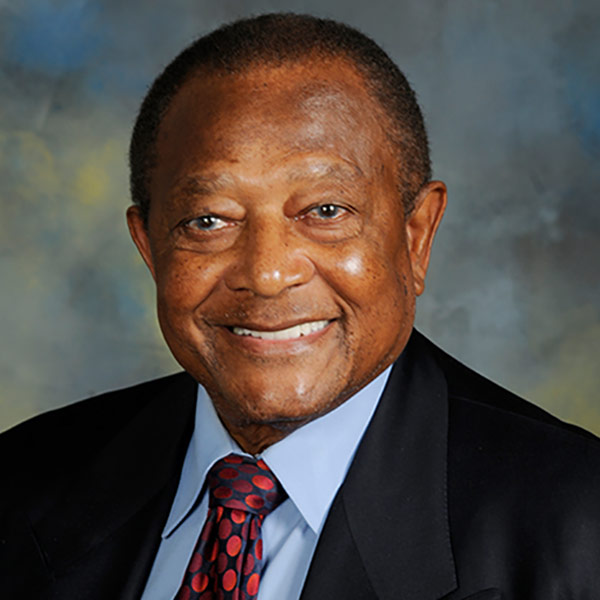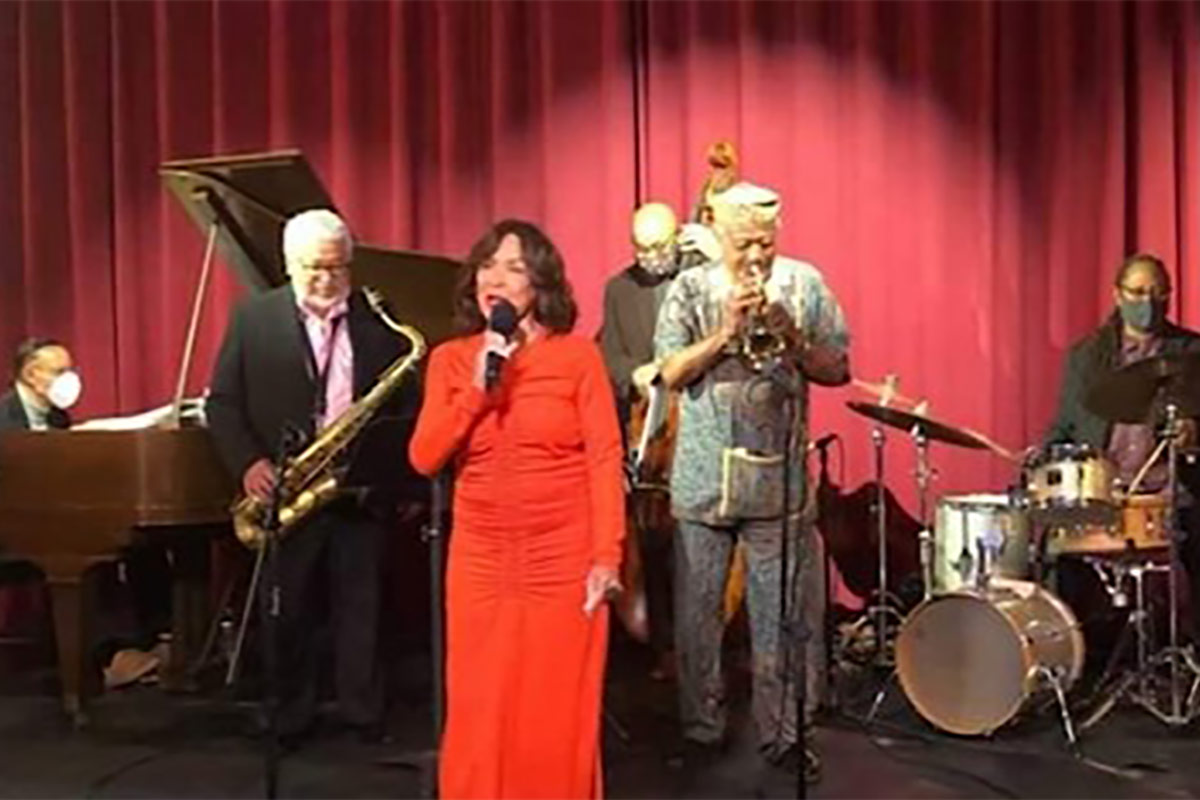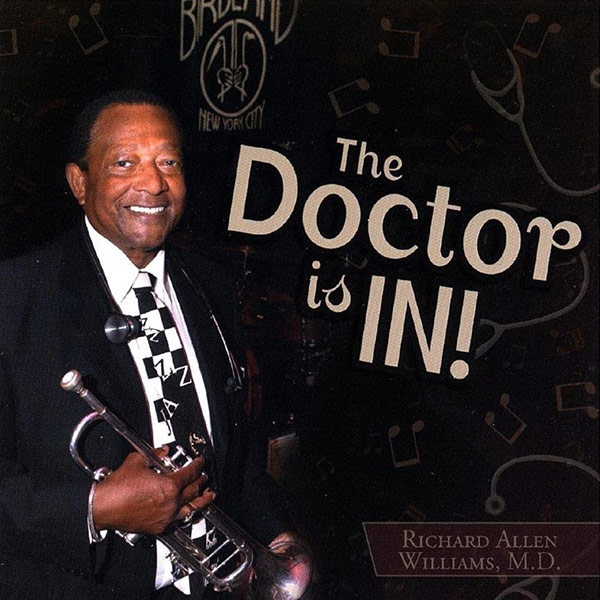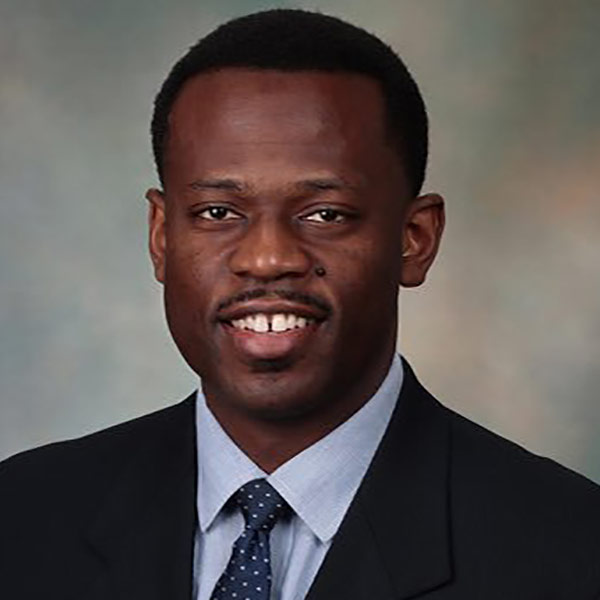Richard Allen Williams, MD, FACC: The Renaissance Man

"Renaissance man" describes an accomplished individual demonstrating expertise in multiple fields. Cardiologist Richard Allen Williams, MD, FACC, is the modern embodiment of a renaissance man. While descriptions extolling Williams' accomplishments are extensive – which include his title as founder of the Association of Black Cardiologists and recipient of several Lifetime Achievement Awards and the ACC's Distinguished Award for Leadership in Diversity and Inclusion – the focus of this article is to study his investment in the humanities and derive lessons on how we, as FITs, can lead more fulfilling lives.
Williams' love of music began at home, listening to his parents' favorite groups, including "The Ink Spots," Mahalia Jackson and various gospel groups of the 1930s-1950s. "Music," he recounts, "was my first form of language." Perhaps it's not surprising that music would be a stable force throughout much of his life. He first played the trumpet around the age of eight. His father accompanied him to his first jam session.
"After a while, I felt comfortable enough to jump in and play." He recalled, "I just practiced with a different level of intensity than most of my friends," which ultimately led him to progress from 3rd trumpet to playing at the world-famous Apollo theater in New York City at age 14 with a renowned band from Philadelphia.
He then went on to play behind legendary vocalist Billie Holiday with the Lou Donaldson Band in 1956 and with the former members of the Jazz Messengers at Birdland in NYC in 2005. He has recorded six CDs, including "The Doctor Is IN!!" and "A Soulful Jazz Tribute to President Barack Obama," for which he received an appreciation gift from President Obama.
In a career spanning decades, Williams has played with innumerable other jazz legends—including Dizzy Gillespie, Bud Powell, and John Coltrane—both in the U.S. and internationally across Europe, Japan, South and Central America. Williams is currently preparing for a jazz concert in Boston at Scullers Jazz Club in June.

One of his most meaningful performances was at the Clifford Brown Memorial in his hometown of Wilmington, Delaware. Clifford Brown—one of the greatest jazz trumpeters of all time—was two years his senior throughout school and one of his two major mentors playing the trumpet. "I Remember Clifford," is a jazz standard that Williams covered in 2009 with his group, The Raw Sugar Jazz Quintet.
His met his other trumpet mentor at 17 years old, while a student at Harvard College in the 1950s. As the youngest member of the Harvard New Jazz Society, Williams received an ultimatum: "Miles Davis is in town. Convince him to play on campus…or you're out of the group."
Though flabbergasted, as he never met the famous trumpeter, Williams rose to the challenge, finding Davis at his resident club, The Stables, and nervously requested that Davis play at Harvard. Davis slowly looked Williams over, before retorting, "…sit down and listen…you may learn something!" An anxiety-inducing assignment resulted in Williams gaining a lifelong friend and trumpet mentor in Davis. Williams also provided medical attention to Davis later in life as his health his declined.
During his medical training, Williams continued to practice and play, citing that his loves of music and medicine are "completely complimentary." He recalls, "I could tell, if I went too long without playing, something was wrong…it impacted my vitality."

So, he made time, and in turn, Williams maintains that being a musician made him a better physician. Williams performed his internship at the University of California San Francisco Medical Center, working 38 hours on followed by 12 hours off, and repeat. During this time off, Williams would join "after-hours" jam sessions with professional musicians. He recounts these sessions with excitement as if they occurred just yesterday.
The arts have been shown to reduce stress and cortisol levels. Furthermore, the arts provide cross-training for congruent skills. A 2017 study found that individuals who began playing piano after age 60 showed greater gains in memory, processing speed, and other cognitive functions. These benefits were dose-dependent.
The way you practice music can also confer benefits. Practicing 15-30 minutes daily (distributed practice) leads to greater skill acquisition and longer retention than sporadic, longer sessions (massed practice). Interleaving (studying related skills/concepts together), produces greater gains than blocked practice (practicing one topic repeatedly) with both learning music and EKGs.
Williams' advice to FITs: "I've had a great experience marrying music to medicine. Based on my life experiences, I'd recommend it to everybody, even those who have not played before. Everybody can do something musically… to their own satisfaction, it doesn't have to satisfy everyone. Just do it. It can't hurt!"
Williams' recordings can be accessed on Amazon, YouTube and CDBaby.com. More information about his musical experiences can be found on the Minority Health Institute website.

This article was authored by Olubadewa A. Fatunde, MD, MPH, a fellow at Mayo Clinic in Arizona. Twitter: @BFatundeMD.
This content was developed independently from the content developed for ACC.org. This content was not reviewed by the American College of Cardiology (ACC) for medical accuracy and the content is provided on an "as is" basis. Inclusion on ACC.org does not constitute a guarantee or endorsement by the ACC and ACC makes no warranty that the content is accurate, complete or error-free. The content is not a substitute for personalized medical advice and is not intended to be used as the sole basis for making individualized medical or health-related decisions. Statements or opinions expressed in this content reflect the views of the authors and do not reflect the official policy of ACC.

